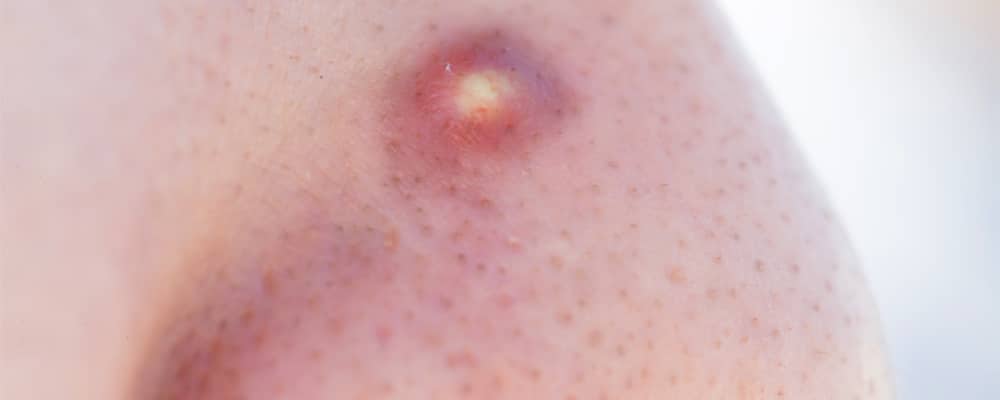Hidradentis Suppurtativa (HS) is considered a rare disease and is also known as Fox Den’s disease. It can be easy to misdiagnose or dismiss Hidradenitis Suppurativa (HS) at first, because initially it may appear to simply be an infected hair follicle or pimple. But HS is much more serious and can develop into a serious and painful skin infection if not treated.
What Is Hidradenitis Suppurativa?
Hidradenitis Suppurativa (HS) is a chronic skin condition that affects both men and women. A person with HS will develop bumps under the skin that grow larger. The bumps continue to increase in size and may abscess. The bumps can be painful and often appear in the groin, on the buttocks, and under the arms. The boils are filled with pus that eventually open and drain. For many people suffering from HS, it can be a difficult and painful experience.
Is HS Contagious?
HS is not contagious, nor is it an STD, but it is thought to be a genetic condition (something you’re more likely to get if your parents have it). People with compromised immune systems are more likely to suffer from HS – so people with diabetes, AIDS, and other diseases that can compromise the immune system should be more vigilant about symptoms and signs of HS.
How Is HS Treated?
There is no cure for HS, so it is a disease that must be carefully managed to minimize pain and discomfort as well as to minimize the underlying causes of the inflammation that causes the body’s immune response. Losing weight and dietary changes can have a significant impact on the number and severity of the wounds. Treating the wounds depends on the patient’s needs. Some may need to use antibiotic creams, others opt for more holistic treatments, such as tea tree oil.
Who Treats HS?
If a patient suspects they have HS, they should speak with their physician. Ongoing treatment may be referred to a dermatologist, but an internist may also be necessary to help identify what triggers the HS outbreaks to minimize them as much as possible.

